The new generation fashion in Africa, particularly in Nigeria, is a vibrant mix of traditional and contemporary elements. Young designers are increasingly incorporating cultural materials like Akwaete, Ankara, Aso Oke, and Adire into their collections, creating unique pieces that resonate with both local and global audiences.
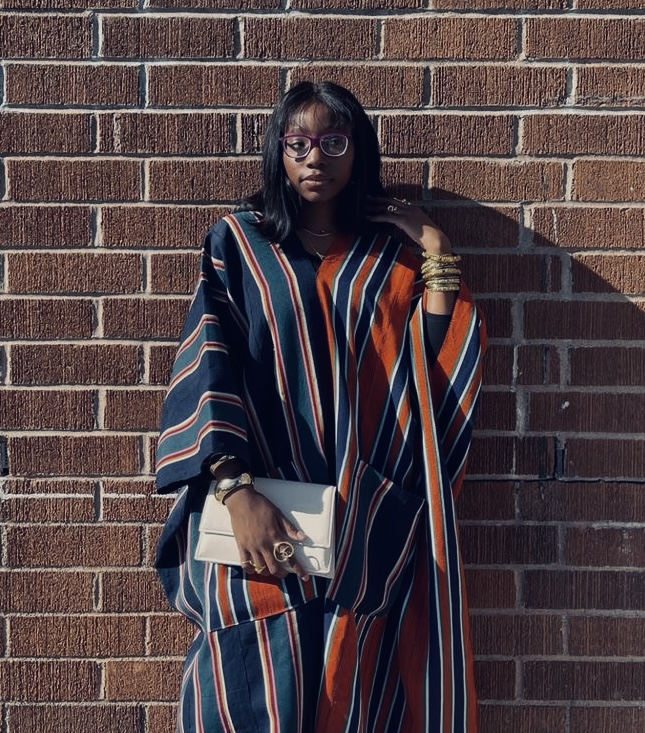
Ask oke gown
Social media plays a significant role in this evolution, allowing designers and fashion enthusiasts to showcase their work and share inspiration widely. Social media has become a powerful tool for promoting Nigerian fashion trends. Platforms like Instagram and TikTok allow designers to showcase their collections to a wider audience, making it easier for them to gain recognition both locally and globally. This exposure helps emerging designers reach potential customers and collaborators, while also allowing fashion enthusiasts to discover new styles and trends.
Nigerian fashion bloggers and influencers play a significant role in this landscape. They curate content that highlights various fashion pieces, often blending traditional and contemporary styles. Their influence can drive trends, as they share their personal styles and promote designers, helping to elevate the visibility of the Nigerian fashion scene. This dynamic interaction between designers, bloggers, and consumers fosters a vibrant community that celebrates and evolves Nigerian fashion continuously. Brands like Deola Sagoe, Orange Culture, Hertunba, Nkwo, Kadiju, Dye lab and many more are at the forefront of this movement, blending traditional influences with modern aesthetics. The rise of Nigerian fashion bloggers also contributes to this scene, as they provide insights and promote the work of emerging designers, helping to elevate the recognition of Nigerian fashion on both local and international stages. This fusion of styles not only celebrates African heritage but also empowers the younger generation to express their identity through fashion.
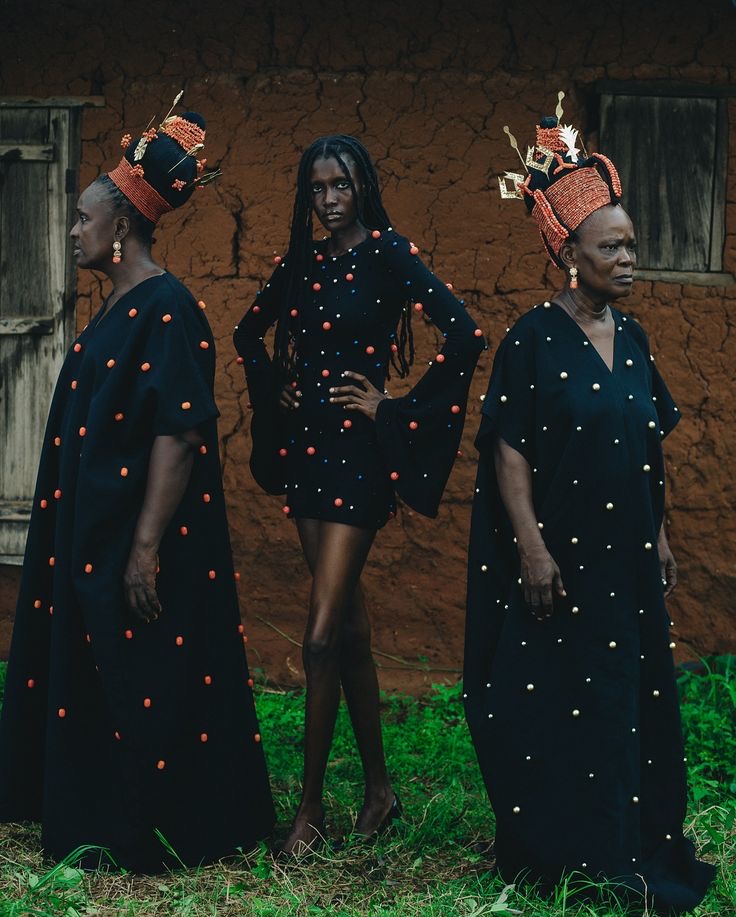
Hertunba
Right now, some popular fashion trends in Nigeria include the fusion of traditional fabrics like Akwaete, Ankara, Aso Oke, and Adire with modern silhouettes. Many designers are also incorporating bold colors, intricate patterns, and cultural motifs into their collections, creating a unique and vibrant style that reflects the rich heritage of Nigerian fashion. Additionally, there’s a growing interest in sustainable fashion practices and the use of eco-friendly materials in the industry. Nigerian fashionistas are embracing these trends and showcasing their creativity through innovative and stylish outfits.
Contemporary outfits made from traditional fabrics like Akwaete, Ankara, Aso Oke, and Adire are becoming increasingly popular in Nigerian fashion. Designers are taking these vibrant and culturally rich materials and transforming them into modern silhouettes that appeal to today’s fashion sensibilities. For example, you might see traditional Ankara prints used in styles like off-shoulder dresses, maxi skirts, or even tailored blazers. Aso Oke, which is often used for traditional attire, is now being incorporated into contemporary pieces like chic dresses or stylish accessories. Adire, with its unique tie-dye patterns, is also being used for casual wear, such as t-shirts and dresses, giving them a fresh and trendy look.
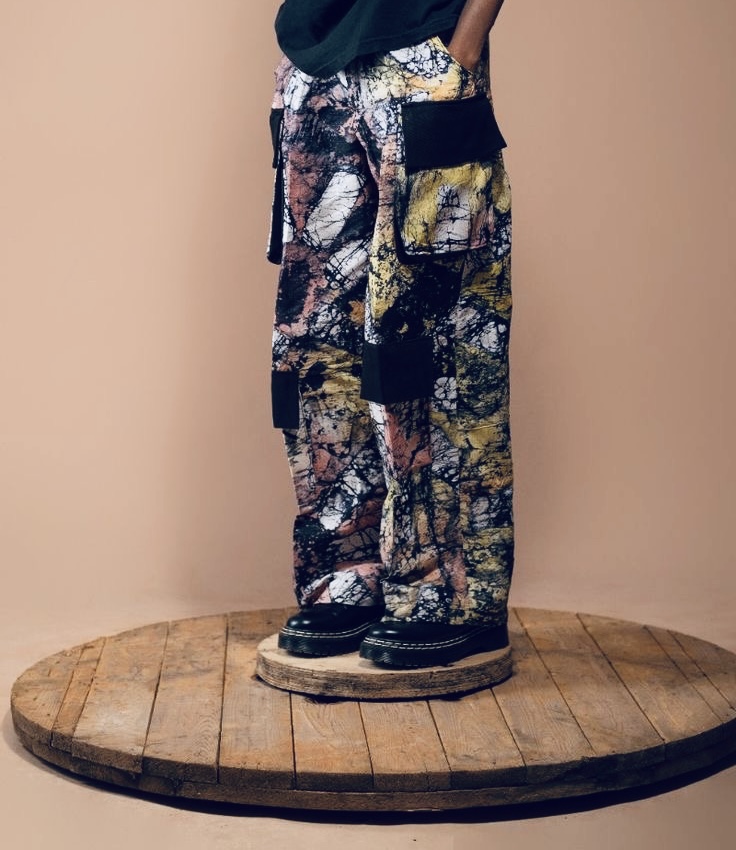
Adire cargo pants
This fusion not only highlights the beauty of these fabrics but also allows for greater creativity in design. It helps to bridge the gap between tradition and modernity, making cultural fashion more relatable and accessible to the younger generation. Plus, it promotes a sense of pride in heritage while encouraging innovation in fashion.
Traditional fabrics are significantly influencing various fashion trends by encouraging a greater appreciation for cultural heritage and craftsmanship. For instance, the vibrant colors and unique patterns of fabrics like Ankara and Adire are being adopted in global fashion, inspiring designers worldwide to incorporate these elements into their collections.
This influence can be seen in streetwear, where traditional prints are used in casual clothing, as well as in high fashion, where designers create runway pieces that celebrate African aesthetics. Additionally, the rise of sustainable fashion has led to a focus on locally sourced materials, with traditional fabrics being recognized for their quality and cultural significance. Traditional fabrics are not just a trend; they are reshaping the narrative around fashion, promoting cultural pride and sustainability while appealing to a global audience.
Sustainable fashion practices in Nigeria are gaining traction as designers and brands become more aware of the environmental impact of the fashion industry. Many are now focusing on using eco-friendly materials, such as organic cotton, recycled fabrics, and natural dyes, to create their collections. Some Nigerian designers are also embracing traditional craftsmanship, which not only helps preserve cultural heritage but also promotes ethical production methods. This shift towards sustainability is encouraging a more conscious approach to fashion, where the emphasis is on quality, durability, and the responsible sourcing of materials.
Traditional fabrics are making a significant impact on the sustainability of the fashion industry in several ways. Firstly, many of these fabrics, such as Akwaete, Aso Oke and Adire, are often handmade using traditional techniques, which means they typically have a lower carbon footprint compared to mass-produced synthetic materials. This artisanal approach promotes slower fashion, encouraging consumers to invest in quality pieces rather than fast fashion items that quickly go out of style.
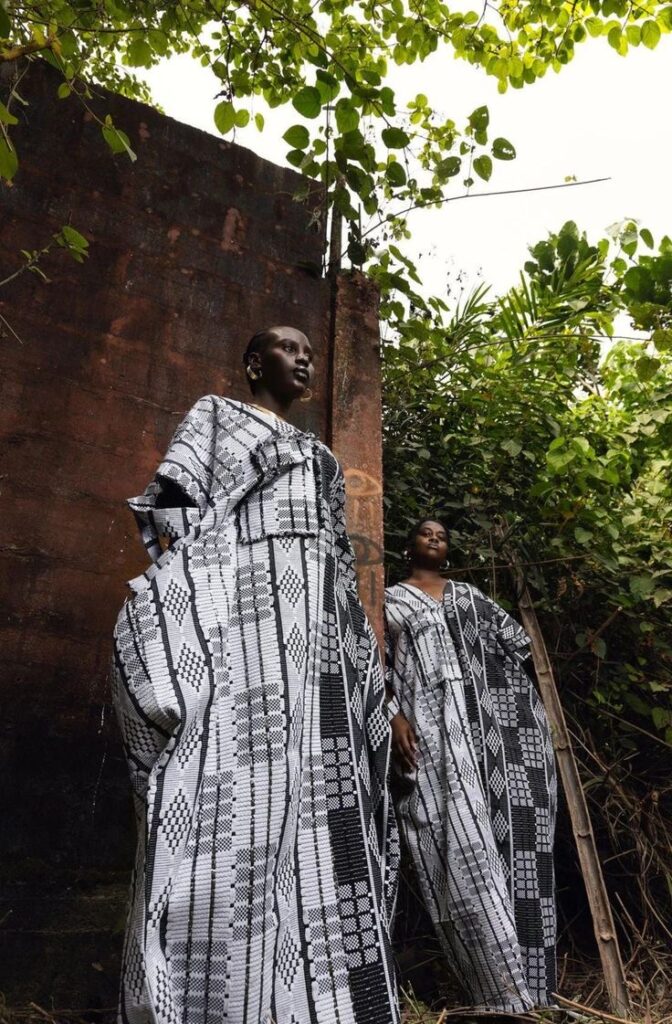
Hertunba’s Akwaete Kaftan
Secondly, by using locally sourced materials and supporting local artisans, traditional fabrics help to sustain local economies and preserve cultural heritage. This not only empowers communities but also reduces the environmental impact associated with transporting materials over long distances.
Lastly, the rising trend of upcycling and repurposing traditional fabrics into contemporary designs contributes to reducing textile waste. Designers are creatively reimagining these fabrics, giving them new life and relevance in modern fashion. Overall, traditional fabrics play a vital role in promoting a more sustainable and ethical fashion industry.
Additionally, there are initiatives and organizations in Nigeria promoting sustainable practices, helping to educate both designers and consumers about the importance of eco-friendly fashion. This growing movement reflects a broader global trend and showcases the potential for Nigerian fashion to lead in sustainability while celebrating its rich cultural roots.
In Nigeria, several initiatives and organizations are actively promoting sustainable practices in the fashion industry. One notable organization is the Fashion for Good initiative, which focuses on educating designers and brands about sustainable practices, encouraging them to adopt eco-friendly materials and production methods. They often host workshops and seminars that bring together industry stakeholders to discuss sustainability challenges and solutions.
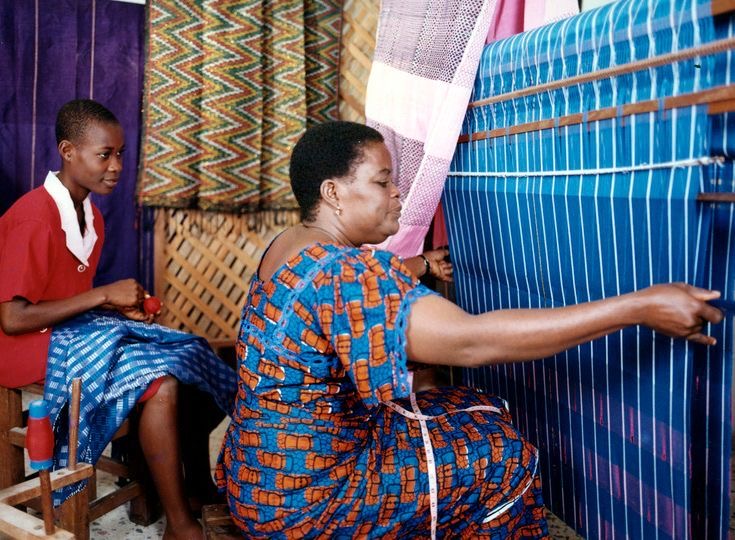
Akwaete production in Anambra states pop
Another important initiative is the Green Fashion Initiative, which aims to raise awareness about the environmental impact of fashion and promote the use of sustainable materials among designers. They collaborate with local artisans and designers to create eco-friendly collections, showcasing the potential of sustainable fashion in Nigeria.
Additionally, events like the Lagos Fashion Week have started incorporating sustainability into their programming, featuring designers who prioritize eco-friendly practices and materials. These initiatives help create a more informed community of designers and consumers, fostering a culture of sustainability in Nigerian fashion.
Lagos fashion week

This is beautiful